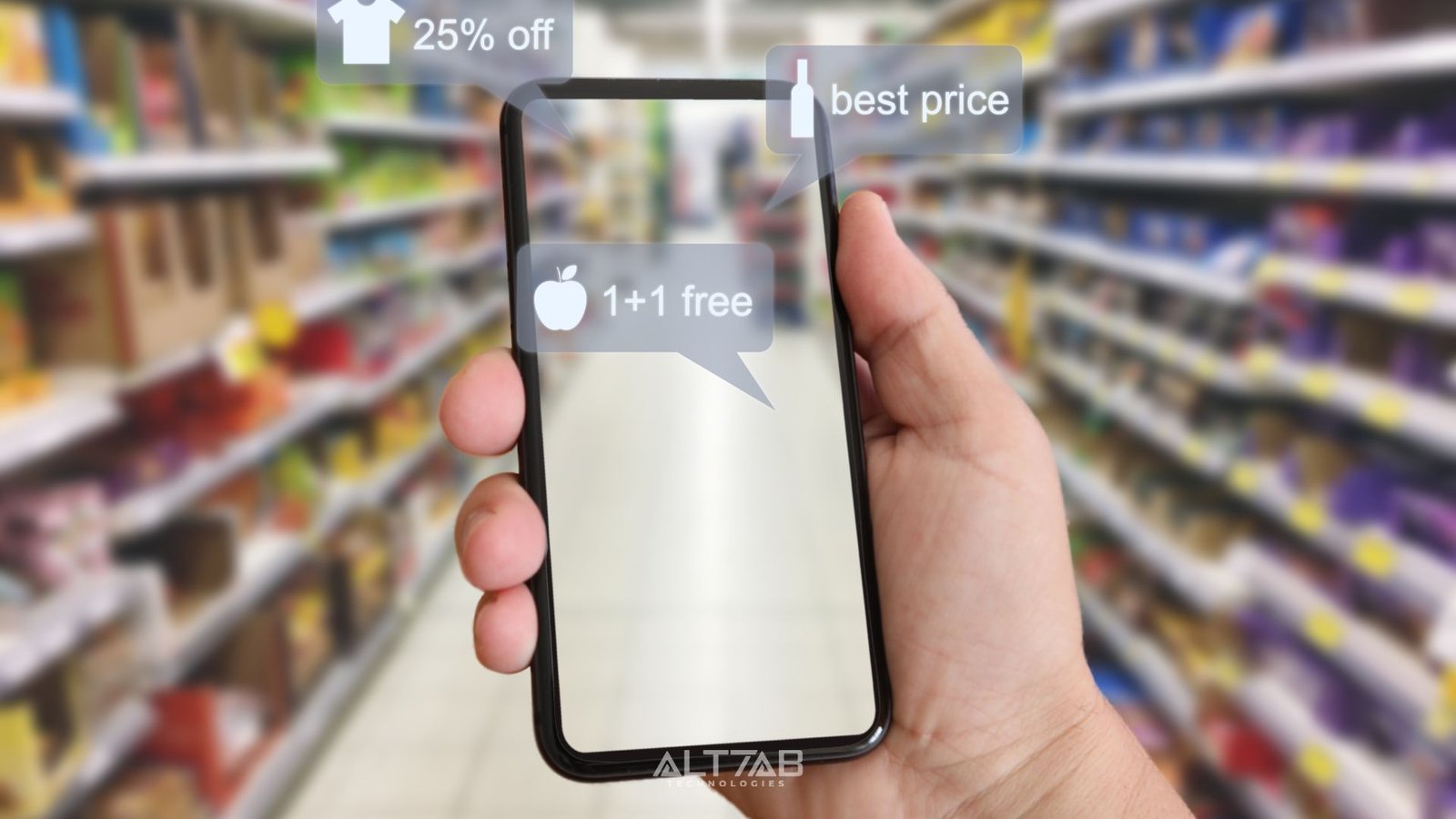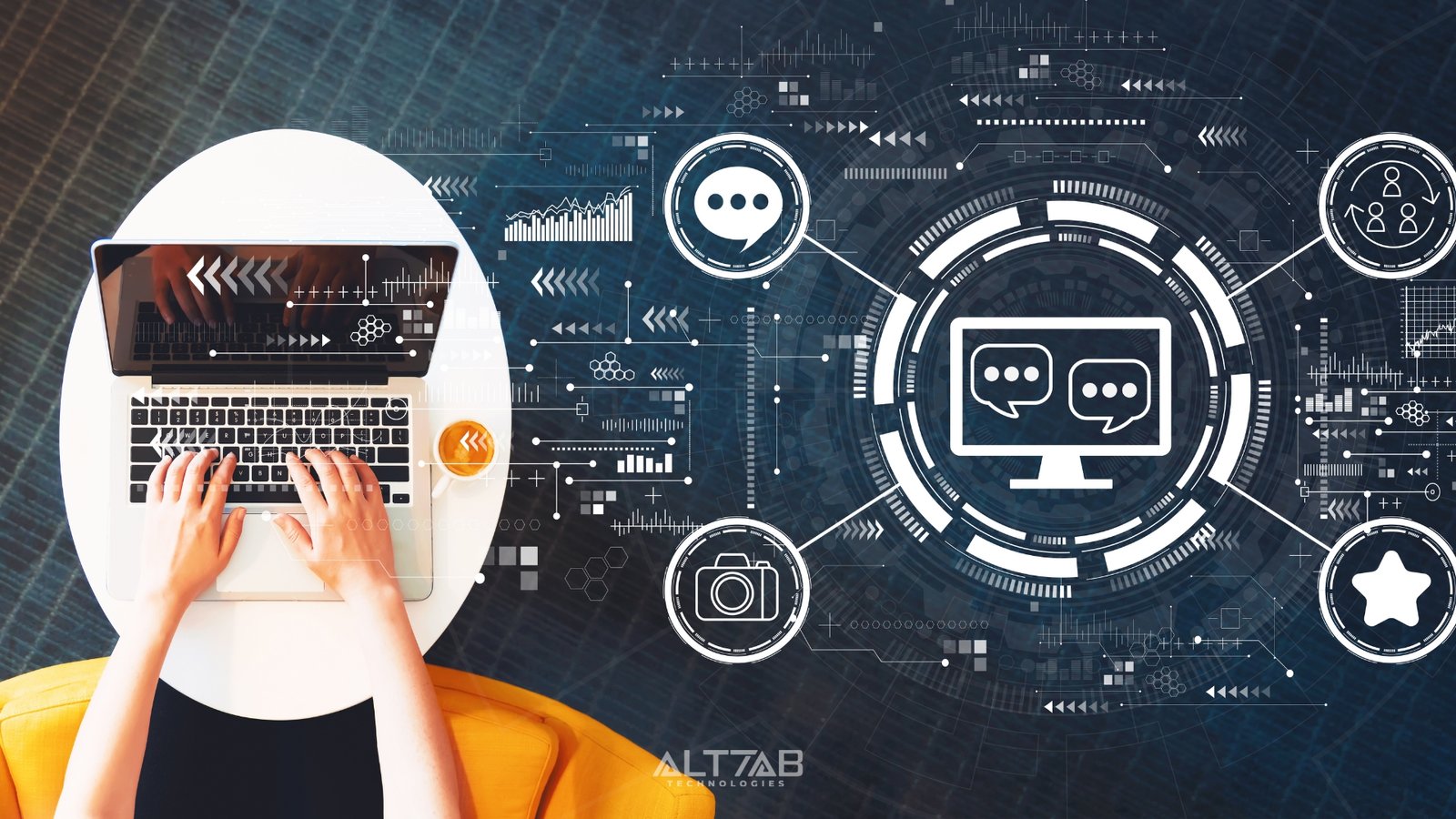Artificial intelligence (AI) is revolutionizing the field of personalized marketing by enabling more precise and effective customization of marketing efforts. From content personalization to predictive customer behavior, AI’s role in marketing is profound and growing. This blog will explore how these technologies are not just enhancing but fundamentally changing the landscape of digital engagement, providing businesses with unprecedented capabilities to tailor their marketing to individual consumer needs.
The Basics of AI in Marketing
AI in marketing utilizes machine learning algorithms and data analytics to understand customer behavior and make automated decisions. This technology swiftly processes vast amounts of data to uncover patterns and insights faster than humanly possible. These insights help marketers fine-tune their strategies, ensuring they’re more tailored and effective.
By employing machine learning, AI can continually improve its accuracy in predicting customer preferences and behaviors based on the data it analyzes. This allows for more precise marketing actions, like personalized email content and optimized advertisement timings, leading to enhanced customer experiences and increased marketing success.

Key Applications of AI in Marketing:
- Customer Data Analysis: AI is capable of analyzing huge sets of customer data quickly and accurately. It looks for patterns, trends, and preferences within this data. This helps businesses understand what their customers like and dislike, which in turn allows them to tailor their marketing efforts more effectively.
- Automated Decision-Making: With the insights gained from data analysis, AI can make quick decisions on its own. For example, it can decide which ads or content to show to different customers in real time. This ensures that each customer sees the most relevant messages, potentially increasing engagement and sales.
- ROI Measurement: AI tools are also great at evaluating how well different marketing strategies perform. They can track various campaigns across different channels to see which ones are working best. This helps businesses allocate their budgets more effectively, focusing more on strategies that offer the best return on investment.
Enhancing Content Personalization with AI
Content personalization is at the heart of AI’s impact on marketing. By understanding individual customer preferences, behaviors, and interactions, AI can help create content that resonates with each user.
Strategies for AI-driven Content Personalization:
- Dynamic Content Creation: AI algorithms adjust the content based on the user’s current situation, like their location or the time of day. For instance, someone in a cold climate might see promotions for warm clothing.
- Personalized Recommendations: AI analyzes past behavior to suggest products or services that the customer might like. It’s similar to how streaming services recommend movies based on what you’ve watched before.
- Automated Email Marketing: AI customizes email campaigns by using data from past interactions, such as previous purchases or items viewed. This means customers receive emails that are more relevant to their interests, increasing the likelihood of engagement.
Predictive Analytics in Personalized Marketing
Predictive analytics is a powerful tool within AI that forecasts future customer behaviors based on historical data. This ability allows marketers to anticipate needs, preferences, and potential churn risk.
Benefits of Predictive Analytics:
- Targeted Marketing Campaigns: Marketers can create campaigns that target individuals at moments when they are most likely to make a purchase.
- Improved Customer Retention: By predicting which customers might leave, companies can proactively engage these customers with special offers or content to increase retention.
- Optimized Marketing Budgets: Predictive analytics helps allocate budgets more efficiently by focusing resources on high-return strategies and customers.
AI and Customer Journey Mapping
AI significantly enhances customer journey mapping by providing detailed insights into how customers interact with a brand across multiple channels. These insights help marketers design a more effective path to purchase.
Using AI to Enhance Customer Journeys:
- Behavioral Analysis: AI tracks how customers use digital platforms like websites or apps, noticing where they hesitate or complete actions. This insight helps businesses pinpoint and fix sticking points in the customer journey.
- Channel Optimization: AI analyzes which communication channels (like email, social media, or web) work best for different customer groups. This lets businesses focus their efforts on the most effective channels for each customer segment, improving engagement and efficiency.
- Personalized Experiences: AI personalizes every step of the customer journey, using past behavior to tailor interactions. This could mean recommending products a customer may like or sending tailored emails based on past purchases, enhancing satisfaction and encouraging repeat business.
Challenges and Considerations in AI-driven Personalized Marketing
While AI offers numerous advantages, there are also challenges that need to be managed to effectively leverage this technology.
Ethical Considerations:
- Privacy Concerns: When companies collect and analyze customer data through AI, they must be extremely careful about how they handle this information. They need to secure the data against breaches and ensure that their data collection and usage practices are transparent and compliant with data protection laws like GDPR or CCPA. This is crucial not only for legal compliance but also for maintaining the trust of customers who are increasingly aware of their privacy rights.
- Bias in AI: AI systems learn from vast amounts of data, and if this data contains biases, the AI’s decisions will reflect these biases. This can lead to unfair or discriminatory outcomes, such as targeting specific demographics either too much or too little in marketing campaigns. Companies need to regularly review and update their AI models to identify and mitigate any biases and ensure that their marketing strategies are fair and inclusive.
Technical Challenges:
- Integration Complexity: Integrating AI into existing marketing systems can be complex and demands significant resources. It involves aligning AI with current databases and CRM systems, ensuring seamless data flow and functionality without disrupting existing processes.
- Skill Gaps: Often, marketing teams lack in-depth AI skills, which can hinder the effective deployment of AI technologies. This gap means companies may need to train existing staff or hire new talent with the necessary AI expertise to manage these advanced tools properly.
The Future of AI in Personalized Marketing
Looking forward, AI is set to become even more integral to personalized marketing. Innovations in AI technology will continue to enhance the ability of marketers to engage with customers in more meaningful and effective ways. Emerging technologies like AI-powered chatbots, voice assistants, and augmented reality are reshaping the future of marketing.
Conclusion
Artificial intelligence is revolutionizing personalized marketing by enabling more precise content personalization and predictive customer behavior analysis. As AI technologies evolve, they offer substantial opportunities for marketers to innovate and improve their strategies. By embracing AI, businesses can not only stay competitive but also significantly enhance their customer engagement and satisfaction.




